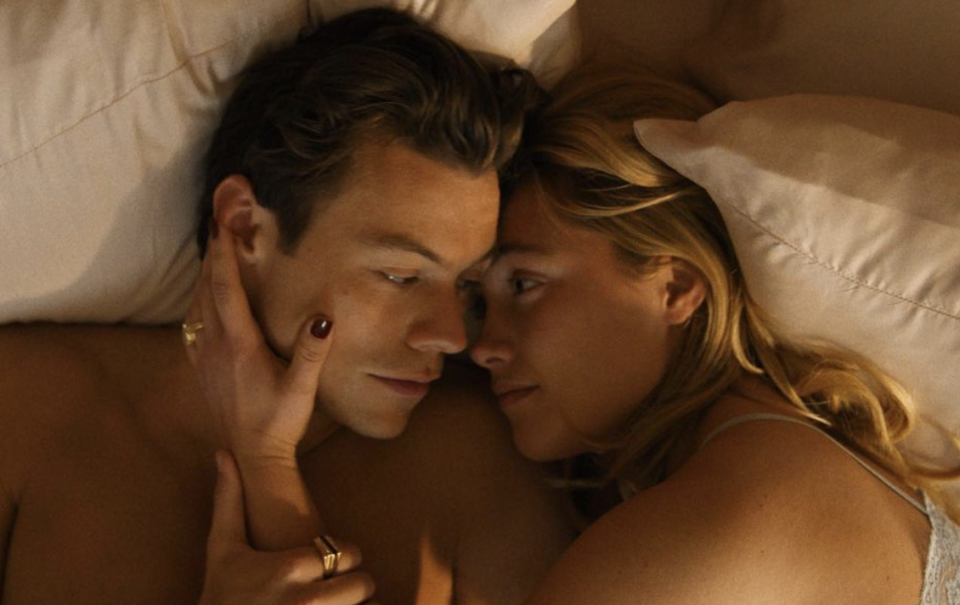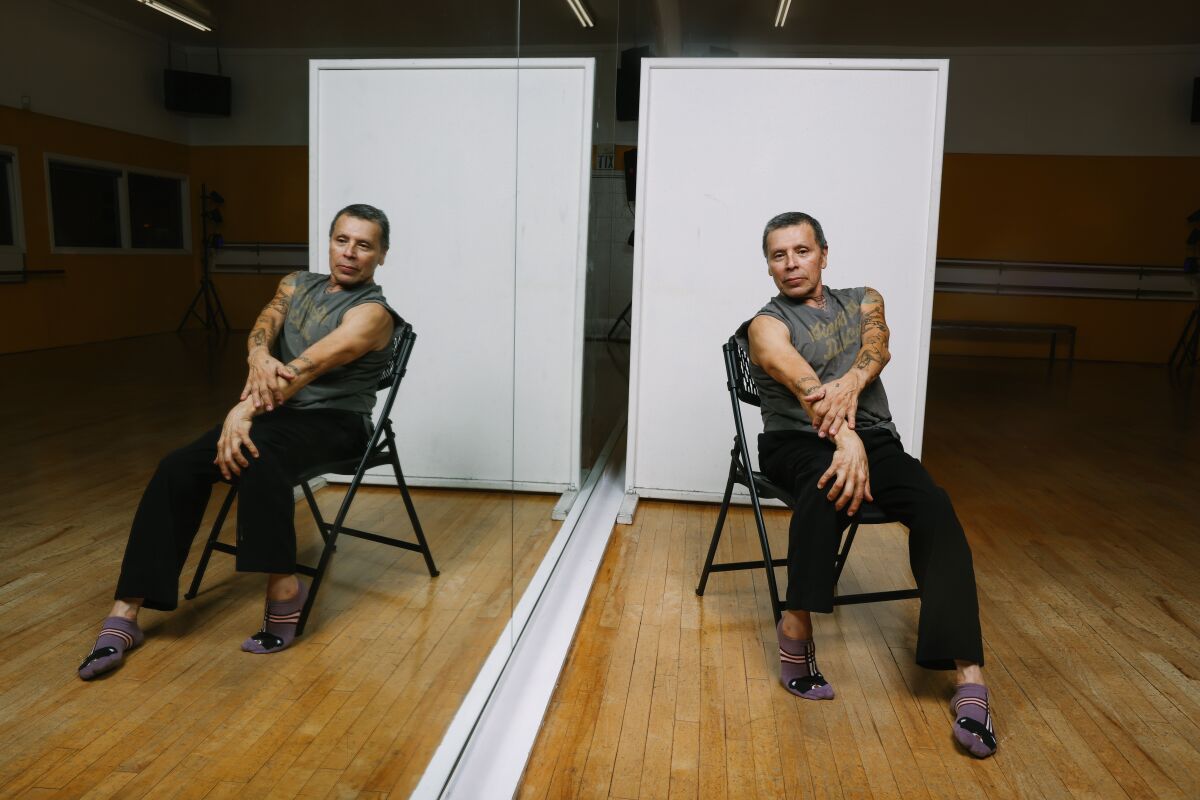
In the coming weeks, proven pop star and burgeoning actor Harry Styles toplines two of the season’s buzziest titles, Olivia Wilde’s scandal-plagued “Don’t Worry Darling” and Michael Grandage’s period gay romance “My Policeman.”
In Wilde’s film, he’s a too-good-to-be-true husband who wants to provide a better life for his wife (Florence Pugh), even if it’s built on secrets, lies, and double-crossings. In “My Policeman,” he’s… a a too-good-to-be-true husband seeking to provide his wife (Emma Corrin) and gay lover (David Dawson) with a better life, all of it built on secrets, lies, and double-crossings.
More from IndieWire
IndieWire executive editor Kate Erbland and deputy managing editor Ryan Lattanzio have seen both films and have plenty to say about them, (Erbland’s review of “Don’t Worry Darling” from Venice is here and Lattanizo’s TIFF review of “My Policeman” is here), but there’s more to explore in Styles’ acting.
Which performance is better? Which film better suits him? And, at the heart of these questions: Is either performance actually good?
KATE ERBLAND: Any discussion of Styles’ acting career has to start with his first on-screen role as young soldier Alex in Christopher Nolan’s ambitious World War II drama “Dunkirk.” It was a canny debut for the pivoting pop star, and he was one of many stars in Nolan’s sprawling tick-tock drama. He fit neatly inside an impressive ensemble that included everyone from Kenneth Branagh and Mark Rylance to Cillian Murphy and Tom Hardy.
These are optimal conditions for a first role, and Styles delivered. His Alex quickly mixed and mingled with the other young stars for a performance that, IndieWire’s David Ehrlich noted, contained “great urgency.” A recurring compliment I’ve heard about that performance (and that I also felt, to some extent) was people didn’t even realize it was him.
That’s smart work, and exactly what you want when you’re a young actor who’s already hugely famous. It wasn’t a star-making turn, but it didn’t need to be: He’s already a star. It indicated interest in moving outside his current notoriety to try something truly different. The problem is that inclination doesn’t seem to carry over to these roles, and the work is worse because of it.
How do you feel about Styles’ current run of buzzy roles? Is he getting better? Worse? Is a viable acting career in the cards for him?
RYAN LATTANZIO: While any discussion of Harry Styles’ acting should stick to the work itself, it’s hard to drown out his dubious, even blubbering comments on the press tours for “Don’t Worry” and “My Policeman.” At the Venice Film Festival, he told reporters, “What I like about acting is I feel like I have no idea what I’m doing.” He also described “Don’t Worry” as “a real, like, you know, ‘go to the theater’ film movie” (“film movie!”). In an earlier interview with Rolling Stone, he said that gay love story “My Policeman” is “not, like, a gay story about these guys being gay.”
You can’t fault Styles for being green amid the grind of press corps talking points — he’s only made four movies, and that’s if you count his post-credits “Eternals” cameo. He is a pop star trying to mold himself into the image of an actor, as other pop stars have tried, some with more success (Lady Gaga) than others (Madonna). His remarks reflect a misunderstanding of the craft — or at least a less than fully formed appreciation of it —and that’s reflected in his work.


Amazon
As I argued in my review of “My Policeman,” Styles seems to have fundamentally misunderstood the material. As closeted cop Tom, he gives a performance that indeed is not about “a gay story about these guys being gay.” He read the film more as a story of “wasted time” — it is that as well, but it’s also very much a gay story specifically about the repressions that were essential for criminalized homosexuals to get by in the 1950s United Kingdom. Styles’ performance — wildly outshone by co-stars David Dawson as his urbane secret lover and Emma Corrin as his beard wife — lacks the necessary inner snarl and turmoil to convey such specifically gay pain.
As for his performance in “Don’t Worry Darling,” a viral scene of Styles tearing into Florence Pugh and decrying how her character’s curiosity is destroying their perfectly manicured life in the Stepford-lite community of Victory is the sort of thing that apparently made Olivia Wilde cry on set. That may be true, but it’s also likely that her praise is spin meant to triage a movie that was on life support well before its premiere. Her biased anecdote also suggests a disconnect from her audience: This Styles scene, and another she described, both land with a comical thud (believe the memes).
Are we watching the same movie she thinks she made? And while Styles may love the fact that he doesn’t know what he’s doing when it comes to acting, what does that mean for the rest of us watching?
Still, it has to count for something that filmmakers like Christopher Nolan and renowned British theater director Michael Grandage have cast Styles in their movies. Kate, what can we say that’s positive about Styles’ acting?
ERBLAND: I found myself instinctively wanting to find something good in Styles’ work. Why not believe the best of people and their career aims? After watching both “Don’t Worry Darling” and “My Policeman” in the space of just one week, the best sequence I could recall appears in the trailer for “Darling”: You can see his most enthralling performance without having to see the whole film.
It’s a small thing, but it’s maybe the only time Styles seems to step outside himself or the big idea of capital-A Acting. It’s an early scene when his Jack observes Pugh’s Alice as she dances and drinks her way through a particularly raucous dinner party. He’s mesmerized by her, maybe mesmerized by the entire thing and the movie-ness of it all, and for a moment he’s fully present as Jack. We see the film’s world through his eyes, but that soon fades into the scrum of “Darling.” Later scenes, in which Styles is tasked with much heavier lifting, only call attention to themselves. No wonder Styles is in awe of the “film movie” of it all, because we are never able to forget that’s what we are watching.


Warner Bros.
That brings us back to what might be the key question for “Darling”: Are we watching the same movie Wilde thinks she made? When it comes to “My Policeman,” are we watching the same movie Styles thinks he made? I think the answer to both questions is a resounding no. Art is always open for interpretation, but here there seems to be a fundamental disconnect that irrevocably shades the work.
Despite what Wilde (and presumably Styles) believes, “Don’t Worry Darling” is decidedly not about female pleasure; no matter what Styles says, “My Policeman” is absolutely a gay story. That means Styles operates from a limited perspective. Maybe he can overcome that with better projects, clearer direction, and more knowledge. Do you think there’s a future here for him?
LATTANZIO: Not to harp on Harry Styles’ nondiegetic discussions around his own movies, but when talking up “My Policeman,” Styles heralded the movie as a groundbreaking depiction of guy-on-guy sex for what it really is, and not as it’s usually shown in movies: “So much of gay sex in film is two guys going at it, and it kind of removes the tenderness from it. There will be, I would imagine, some people who watch it who were very much alive during this time when it was illegal to be gay, and [director Michael Grandage] wanted to show that it’s tender and loving and sensitive.”
His assessment of “so much of gay sex in film” being tantamount to vigorous thrusting and nothing more suggests his knowledge of queer mainstream cinema is limited to “Cruising.” This also can tell us something about his acting: A path forward for Styles might be to go back to the basics and watch those “film movies” and study the performances that inspired so many before him. Like many up-and-coming actors, Styles wants to model himself after the Marlon Brandos and Joaquin Phoenixes. He wants roles that make him uncomfortable in his own skin and therefore allow him to express the instability beneath his pop-star identity. In other words, roles that show a more complicated and daresay tender side to the man.


screenshot/Prime Video
Actors like Brando, and Montgomery Clift, or even Al Pacino in “Cruising” or Heath Ledger in “Brokeback Mountain” explored the psyches of sexually ambiguous characters and fearlessly projected that inner conflict on screen. The films of David Bowie could also point Styles in the right direction; he was a pop star whose roles were as sexually fluid, fabulously outré, and as emotionally inscrutable as he was. Styles seems to perceive acting as the preordained next step of his celebrity, a slogging inevitability on stardom’s path rather than a passionate natural extension of his artistic gifts.
Of which he has many, in the already established lane he owns. While writing, I’m revisiting tracks off “Harry’s House,” Styles’ Billboard-topping album from this past May. He’s an exceptional songwriter and brilliant singer — his metaphors are lyrically playful and complex, his vocals and musicianship game as strong as any. But at this point, the screen is not for him.
“Don’t Worry Darling” is in theaters this Friday, September 23. “My Policeman” will be in theaters on Friday, October 21, followed by a streaming debut on Prime Video on Friday, November 4.
Best of IndieWire
Sign up for Indiewire’s Newsletter. For the latest news, follow us on Facebook, Twitter, and Instagram.








